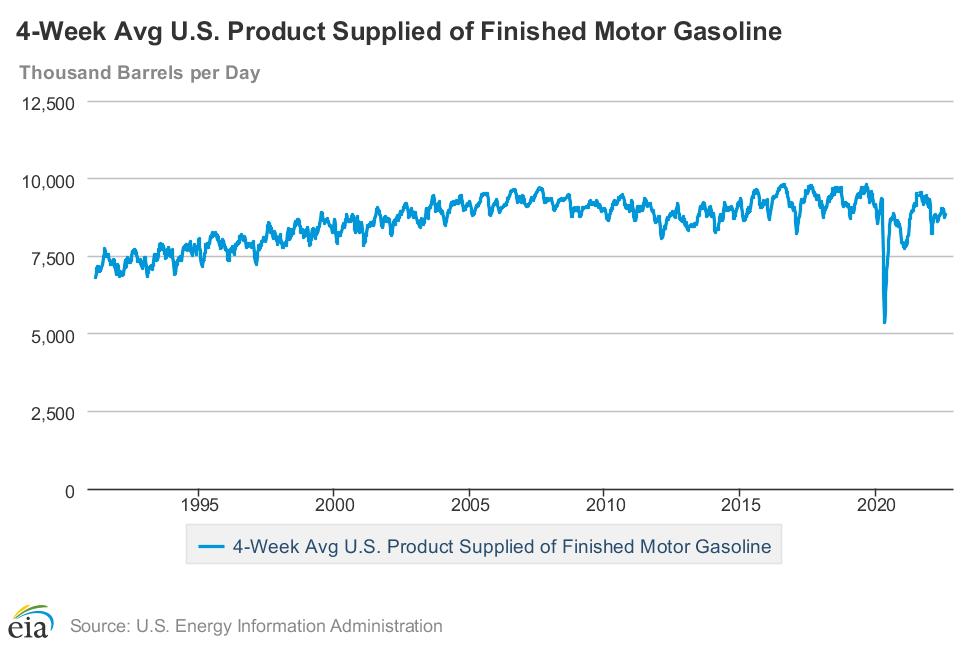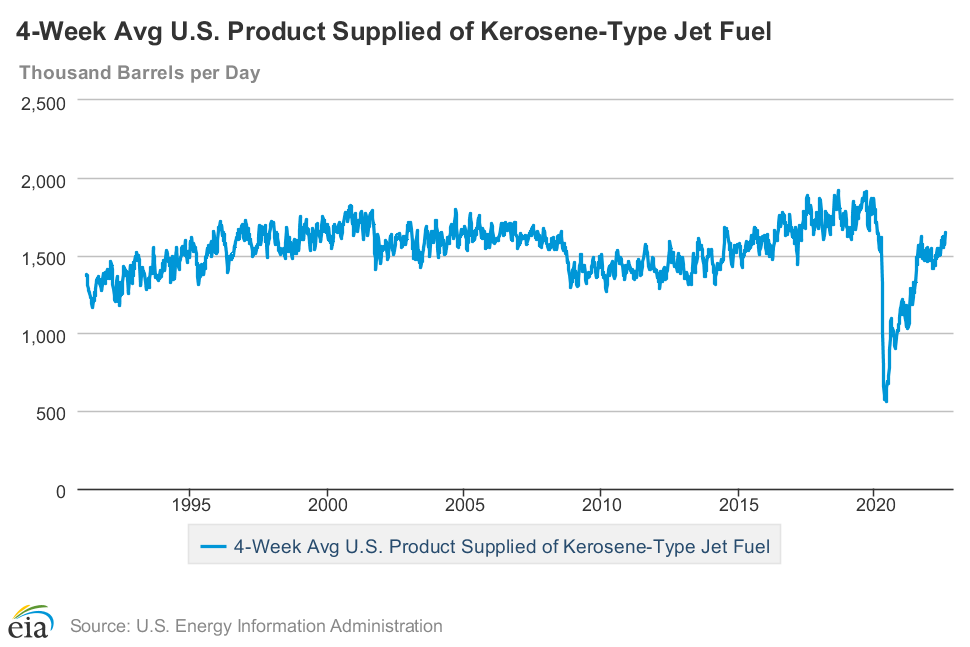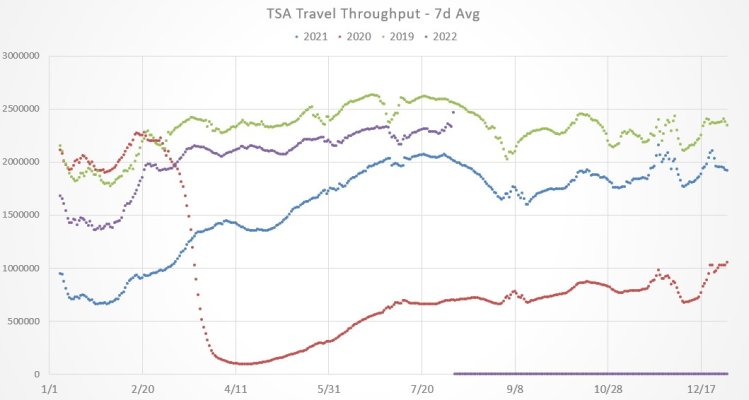Here's the article I talked about earlier. It's reprinted from Bloomberg by Yahoo Finance, and is free reading.
It's hard to believe, is it not, that people drive less now than in the COVID peak of 2020? How to explain all the cars on the road now, compared to back then?
See:
https://finance.yahoo.com/news/gasoline-demand-stalls-height-us-165111254.html
PS. A possible explanation is the composition of the cars on the road now, vs. then. Many families have multiple vehicles. If they switch to a smaller car, there may be more cars on the road now, compared to the summer of 2020. Yet, a small car may have 1/3 or 1/2 the gas consumption of a bigger vehicle, resulting in less overall consumption.
I still don't think it's enough. Traffic was so low back in 2020. There's something just not right.



